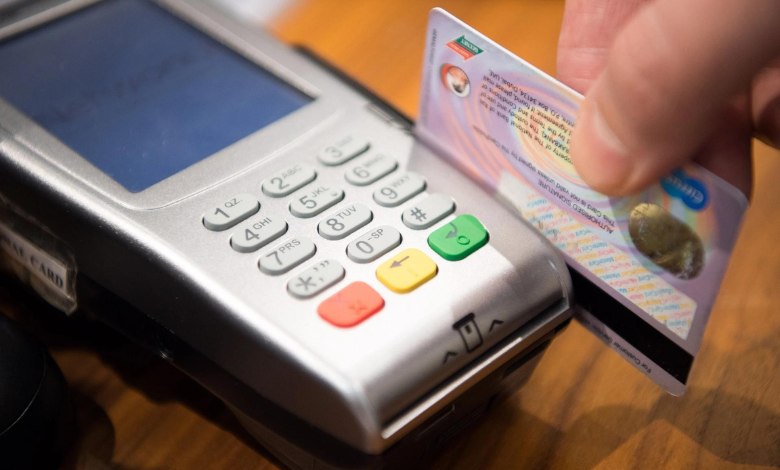Debunking The Myths Regarding Credit Cards

Credit cards can be a useful and effective financial tool that can help you establish a credit history if utilized. They can also be an excellent resource for buying regular items. There is a reason why credit cards are so common. From young people to the elderly, they have made life incredibly convenient and are available to practically everyone. They not only give you access to a variety of benefits and unique experiences, but they also increase your credit worthiness. There is perhaps no better option than a credit card for urgent expenditures. The normal user may occasionally find it difficult to manage payments, comprehend credit conditions, and maintain a healthy credit score due to the numerous widespread myths in these areas. Most people are aware of the advantages associated with credit cards nowadays, but some of them still consider these as debt traps and have lots of myths about credit cards in their minds. We’re here to clarify a few of the most widespread misconceptions about credit cards so that you can concentrate on building your credit profile instead of avoiding credit cards.
Myths To Avoid:
here are a few myths about credit cards that are worth debunking:
Consumers who use credit cards are forced into an endless cycle of debt.
It can be sometimes challenging for consumers to maintain a low balance on their credit cards due to the high-interest rates associated with it. But, interest is only charged when you delay your credit card payment. If you have paid your bills on time, you will never fall into a debt trap. Nevertheless, it is getting simpler and simpler to select a card that is suitable for your financial circumstances, thanks to the increase in information available online. You can plan out possible future debt issues using helpful internet tools. Banks provide free personal credit counseling to people opening cards. Several credit cards have 0% Interest Rate deals in starting that may be utilized carefully.
Using credit cards while traveling is risky.
Most cards have liability insurance backing them up in case they are lost or stolen while you are abroad. Many banks take extra steps to verify that you are the person making a transaction while being in a foreign nation. Credit cards can be useful while traveling to maintain backup plans and many businesses. Also, it provides travel or trip cancellation insurance. So, traveling with your credit cards is not that risky if you are responsible enough and you are aware of zero liability protection. In fact, credit cards are much more convenient and advantageous than debit cards when you are traveling abroad.
Avoid using Credit Cards
You might have heard from your parents or friends that you shouldn’t use credit cards; instead, use debit cards, but this advice is incorrect. Credit score, also referred to as a Cibil score, determines how you behave when repaying your debts on time and this three-digit score can be of great use. In the future, if you need a loan, the lender will verify your credit history before approving your request. And if you don’t have a credit card then a lender will not be able to determine your creditworthiness and there are high chances that your loan request will be rejected. Therefore, the purpose of using a credit card should be to raise your credit score rather than acquiring debt.
Magnetic cards are less secure than chips.
No, not always!
This innovative and highly praised technology does not make magnetic strip cards much safer than older ones. But don’t allow this to mislead you into a sense of insecurity. EVM cards were created to boost security because they still do not need the input of a PIN, they are often vulnerable to hackers. Online shopping is especially unsafe in “cards not present” transactions. You must input not only your card number but also a variety of essential personal elements.
The Interest Rate you initially paid is fixed.
Your card’s initial interest rate may either go down or up, depending on your credit usage and spending patterns. Some credit cards come with a 0% introductory APR, but when the first year of 0% interest expires, you are returned to pay conventional interest rates. With high interest rates, cardholders have the option to ask for a modification to the interest rates and payment deadlines. Calling your card company and questioning potential rate adjustments is the best course of action. Many people don’t make use of this opportunity to the fullest.
Credit Scores won’t be affected by unused Credit Cards.
Incorrect! The reality is that a person’s credit score is a predictor of how likely they are to repay their debts. Whether you use the credit card after applying for it or not, your credit score affect
in a positive or a negative way.
Always avoid having a large credit card limit.
Many people tend to reduce their credit limit in case their excessive shopping tendencies get out of hand. However, having a bigger credit card limit provides some benefits, such as more freedom to make larger purchases and extra cash for unplanned expenses.
The debt-to-credit ratio, or the amount you owe with your overall credit limit, accounts for another 30% of your credit score. Your debt-to-credit ratio will be low if you maintain low balances and a high credit card limit, which will raise your credit score. You can raise your credit limit by applying for a credit card with a greater credit limit, paying your bills on time, and keeping your credit score high.
Cancel Credit Cards that you don’t use
You shouldn’t close a credit card for two main reasons: first, the age of your credit history accounts for 15% of your credit score. Let’s say you had a credit card that you purchased when you were 20 years old. Now that you are 30, you realize that you don’t use the card and decide to close it. Instead, come up with the idea of utilizing it once every two to three months for little expenditures. It will continue to use that account. Additionally, it will ensure that the age of your credit is greater and will contribute to improving your credit score. You shouldn’t cancel your credit card for another reason: it will hurt your credit utilization rate. The credit usage rate is proportion of credit card debt to available credit. It accounts for 30% of your credit score. If you close one of your credit cards, your total credit limit reduces. As a result, the credit utilization ratio will increase.
Annual Fees for Credit Cards are never appropriate.
Whether or not, this is a wise decision that depends on your spending patterns. For example, some of the best credit cards in India could charge only Rs. 500 annual fees, but you also get free checked bags on flights or access to an airport lounge. However, some cards have an annual fee as high as Rs. 50,000 or even more, but the features of these cards may not excite you. Different people have different spending habits and requirements. Therefore, their credit card preferences may also vary accordingly. So, neither a lifetime free credit card is good for everyone nor the high annual fee credit cards are bad. The benefits of this kind of premium card might build up, making it worthwhile to pay for if you have a strong case of travel.
Bottom Line:
Your financial goals may remain on track if you debunk these myths .Remember, if you use a credit card responsibly, it will simplify your life. All you need to do is use it responsibly and make on-time bill payments. The more you learn, the more knowledge you can grasp to make the right financial decisions. Don’t let false beliefs keep you away from making the best choices and getting the most out of your credit card rewards. We hope that these clarifications help you to understand common credit card myths and how to overcome them.





